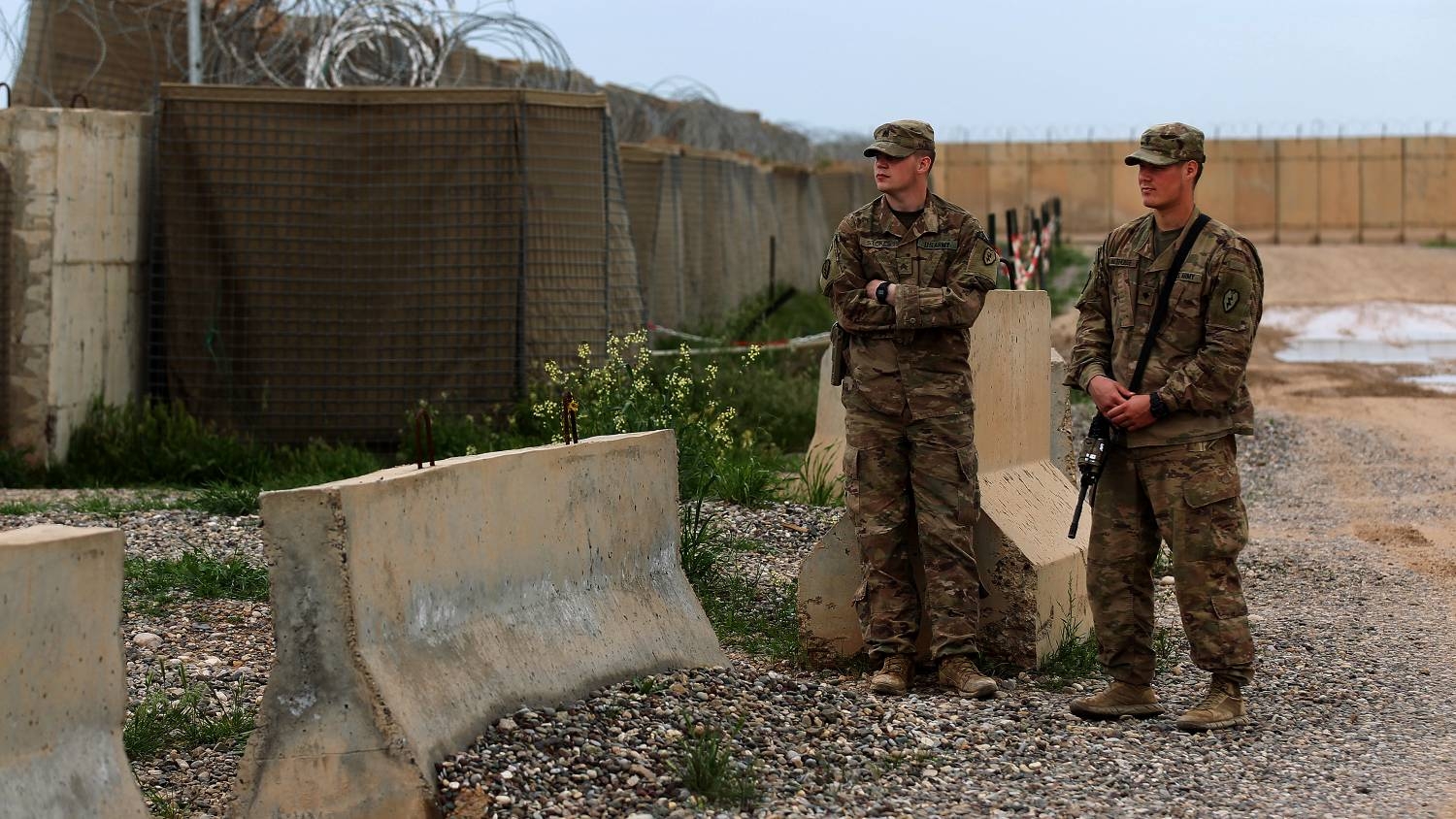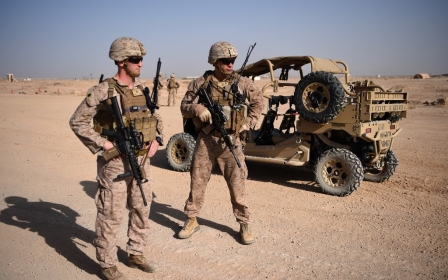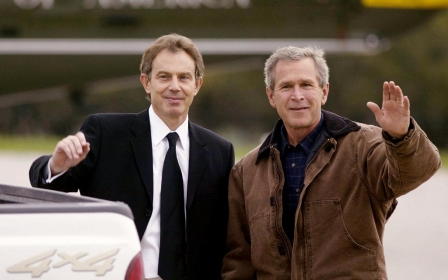US Senate committee votes to repeal Iraq war authorisation

The US Senate Foreign Relations Committee has voted to advance a bill aimed at repealing the 2002 authorisation that greenlit the US invasion of Iraq.
The committee on Wednesday approved the measure, led by Democrat Tim Kaine and Republican Todd Young, with a 13-8 vote. It would repeal both the 2002 Authorization for the Use of Military Force (AUMF), as well as the longer-standing 1991 AUMF.
'We need to put the Iraq War behind us once and for all'
- Chuck Schumer, US Senate majority leader
"This is about ending endless wars and reasserting Congress’ Constitutional role in matters of war, peace, and diplomacy," Kaine said on Twitter.
The vote in the Foreign Relations Committee comes after the House had voted in favour of repealing the 2002 AUMF in 2021. It also comes days before the anniversary of the US invasion of Iraq in March 2003.
It will now head to the Senate floor for a vote and appears to have support from Senate leadership. Senate majority leader Chuck Schumer last week said that "we need to put the Iraq War behind us once and for all".
New MEE newsletter: Jerusalem Dispatch
Sign up to get the latest insights and analysis on Israel-Palestine, alongside Turkey Unpacked and other MEE newsletters
"And doing that means we should repeal the legal authority that initiated the war to begin with."
In December 2021, the Biden administration announced an end to the US combat mission in Iraq, but rather than withdrawing the 2,500 American troops from the country, Washington said they would be transitioning to an "advise and assist" mission.
'Threat to democracy'
Anti-war groups have been campaigning to end the Iraq AUMF for years, and are calling on the Senate to quickly put the bill to a vote.
"The legal authority that greenlit that catastrophe, the 2002 AUMF, should have been repealed years ago," Eric Eikenberry, government relations director at Win Without War, said in a statement given to MEE.
"Repealing the 2002 AUMF is not just about tying up bureaucratic loose ends. As many members learned the hard way during the previous administration, an unchecked executive is a threat to our democracy."
Still, the measure would not repeal the wider-ranging 2001 AUMF passed in the wake of the 9/11 attacks.
The open-ended nature of the 2001 AUMF has allowed multiple presidents to wage war against a number of groups, including al-Qaeda, the Taliban, al-Shabab, and Islamic State (IS).
It has been applied in countries including Afghanistan, Iraq, Syria, Libya, Somalia, and Yemen.
Several lawmakers, including Congresswoman Barbara Lee, have been working on legislation to revoke the 2001 AUMF. But the efforts have been met with a more divided Congress.
On Wednesday, Senator Rand Paul said he proposed repealing the 2001 authorisation, however, was met with near-unanimous opposition in the Senate.
Middle East Eye delivers independent and unrivalled coverage and analysis of the Middle East, North Africa and beyond. To learn more about republishing this content and the associated fees, please fill out this form. More about MEE can be found here.




